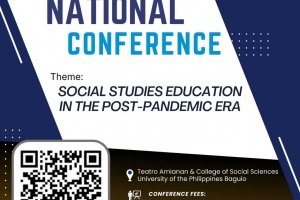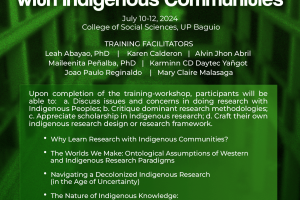CSS presents Why Still the University?

In celebration of the foundation anniversary of the University of the Philippines Baguio as the 7th constituent of the UP System, the College of Social Sciences– CSS presents Why Still the University?: Reflections of Institutional Autonomy. This lecture will also be part of the CSS Lecture Series, a regular activity of the College of Social Sciences that provides lectures on exciting topics revolving around the various disciplines of the social sciences.
In line with the theme of university, Mr. Ranier Abengaña, a lecturer of Philosophy under the Department of History and Philosophy, will be delivering this lecture. The event will be joined by Prof. Franz Yoshiy, II as a moderator and Prof. Arellano Colongon, Jr. as a reactor.
The event is open to the public on 28 November 2022, Monday, from 4:30 to 6:00 pm via Zoom. Pre-registration is required at this link.
You can read the lecture description here:
What does it mean for a university to have autonomy? Historically, universities have always attempted to liberate themselves from or resist forms of external control that seek to encroach upon the internal affairs of the institution. The often-invoked “crisis” of the university, then, may be framed in terms of the problem of academic freedom, i.e., institutional autonomy in the broad sense of the term. Universities in medieval and modern periods have struggled for autonomy against explicitly identifiable external authorities, namely, the church and the state. The crisis of the contemporary university, however, seems more complex. Do we still know where to situate power? Or, have we now internalized the logics of forces once external to the institution? If our response to the latter is affirmative, our investigation, then, merits a consideration of ideology critique in the problematization of the autonomy of the contemporary university. This presentation takes an interdisciplinary and critical approach to the treatment of the state of our present-day higher education institutions. It seeks to provide some points for consideration as we reflect upon (what we take to be) our institutional autonomy today.



